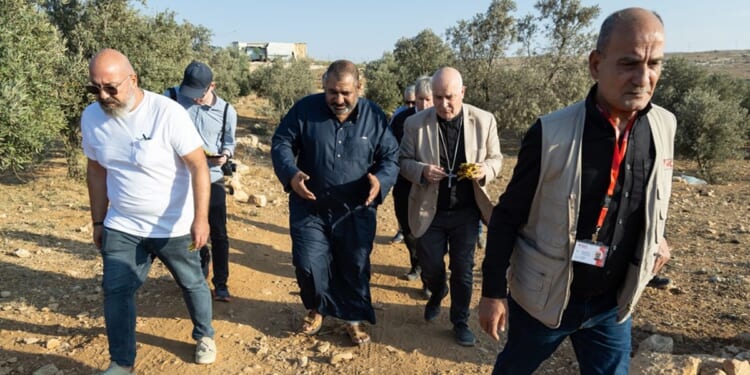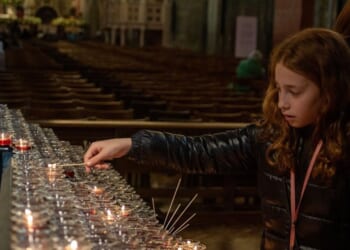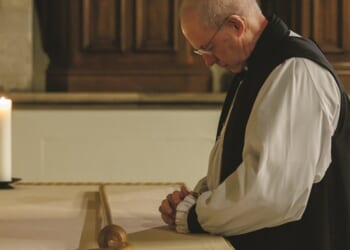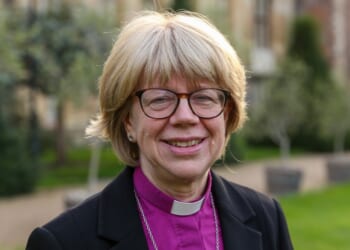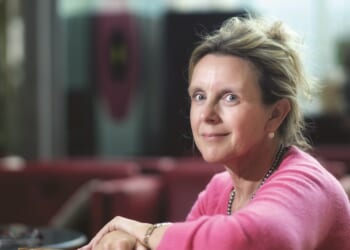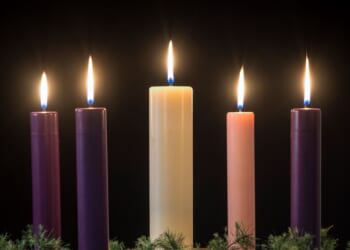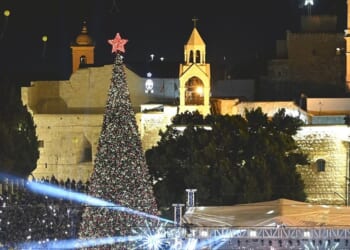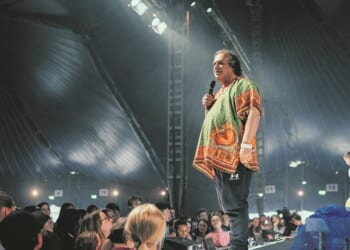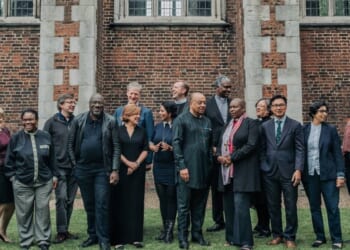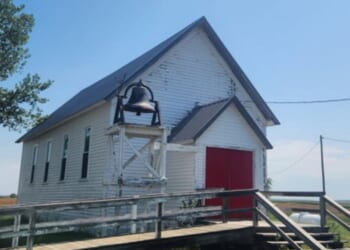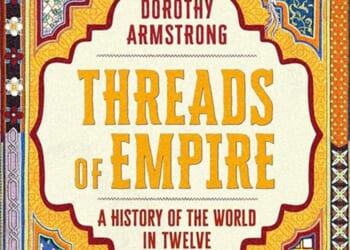THE Archbishop of York was forced to cut short a visit to a family in the south Hebron hills on Saturday, after Israeli police ordered the Church of England delegation to leave the area.
Earlier on Saturday, after meeting with Palestinians campaigning against the planned demolition of homes in their village, heavily armed Israeli settlers stood watching the Archbishop’s delegation, and subsequently blocked the road, preventing them from leaving.
The encounter took place in the village of Susya, in the occupied West Bank, where the Archbishop was meeting with members of a family who were injured in an attack on their land by Israeli settlers.
The Church Times is covering the Archbishop Cottrell’s visit to the West Bank and east Jerusalem, which started on Friday and is due to finish on Tuesday.
“They don’t want us to be here, but we are here: to show solidarity with people whose livelihoods, whose homes are under threat, and to tell their story and to do what we can to witness for peace and justice in this land,” he said.
The south Hebron hills are in Area C of the West Bank, under Israeli civilian and military control. Locals in the village Umm al-Khair are asking for international support to save their homes, which are under demolition orders from Israeli authorities.
“It will be a disaster for the village how many people will be displaced by this demolition operation, if it happens. We need more intervention from our friends,” Eid Hathaleen, a community leader, said, and thanked the Archbishop for his visit.
Mr Hathaleen’s cousin, Awdah, was shot and killed during a raid by settlers in July this year.
During his visit to Umm al-Khair on Saturday, the Archbishop met with members of the local Women Development Programme, which is supported by the East Jerusalem YMCA. It was on leaving this meeting that he found his vehicle blocked by the armed settlers.
After a stand-off of around five minutes, police arrived and spoke with the settlers, who then moved their truck.
Armed settlers operate as “quasi-military vigilantes tolerated by the police”, the Dean of St George’s College, the Very Revd Canon Richard Sewell, who is travelling with the Archbishop, explained during the incident.
THE Archbishop’s encounter with the police occurred in the nearby village of Susya. He had just entered the home of a local family, who aren’t being named for their own safety, when the call came: Israeli police had arrived, and the delegation was being ordered to leave.
A police officer said that the area was closed to non-residents, due to the number of recent incidents. When questioned, he seemed to acknowledge that the incidents in question were attacks by Israeli settlers.
But the Archbishop was still able to hear the family’s story, and enjoy the bread they’d prepared for his visit, as the group walked back up the rocky path to the main road, where the police stood waiting. A police officer said that the area was closed to non-residents, due to the number of recent incidents.
The mother of the family had baked the bread with one hand, she explained, because she had been injured during an attack by settlers on her home. Her husband received a head injury in the attack.
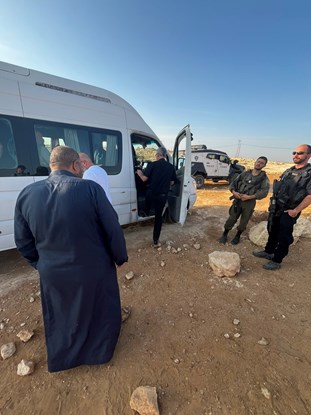 Andrea Krogmann for the Office of the Archbishop of YorkPolice watch the Archbishop’s delegation after being ordered to leave
Andrea Krogmann for the Office of the Archbishop of YorkPolice watch the Archbishop’s delegation after being ordered to leave
THE demolition orders in Umm al-Khair follow the murder, in July, of one of the village’s residents, Awdah Hathaleen, by a settler. He was shot while filming a settler raid, and while holding his infant son, according to a report in the Palestine Chronicle. Mr Hathaleen’s body was not handed over by Israeli authorities until a week after his killing. Muslim burial customs require a body to be buried as soon as possible after death, but Mr Hathaleen’s body was not release until after a hunger strike by around 70 women from the village had attracted international attention.
The man who is alleged to have shot Mr Hathaleen, Yinon Levi, was briefly arrested by Israeli police, but has since been released after a judge ruled that he had been acting in self-defence.
Mr Hathaleen’s brother, Khaled Mohammed, told the Archbishop that he “needs justice” for his brother. “I need the person who killed my brother to go to jail. But with this government, in this time, will not happen.”
According to reports by Al Jazeera, Mr Levi runs an earthworks company that has previously been engaged to demolish Palestinian homes. They report that, since his release, he has been seen again in the village preparing the ground for the construction of a further settler outpost.
On Thursday, a letter signed by over a hundred Democratic members of the US House of Representatives called on the Israeli government to halt the planned destruction of homes.
Settlements are illegal under international law, but are being encouraged by the current Israeli government. The high-profile Minister for National Security, Itamar Ben-Gvir, lives in a nearby settlement.
Mr Ben-Gvir is currently sanctioned by the UK government for “repeated incitements of violence against Palestinian communities” in the occupied West Bank.
The East Jerusalem YMCA is providing counselling services to children in Umm al-Khair who are traumatised after witnessing the killing of Mr Hathaleen.
Explaining the importance of the counselling they provide, a member of the YMCA staff said: “If there is no inner peace, there will never be world peace.”

